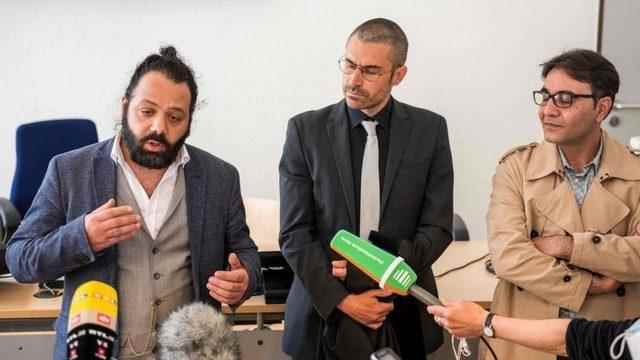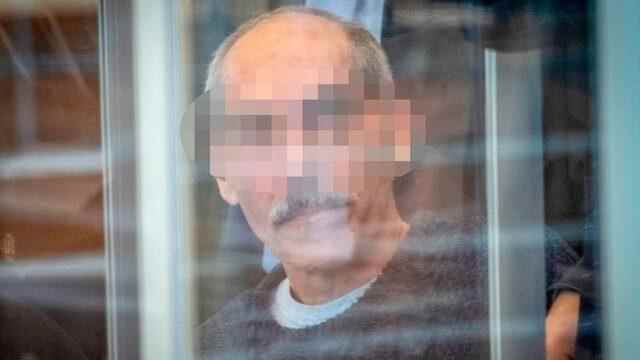In Germany, verdict is given in the case of Anwar Raslan, who was accused of systematically massacring and killing detainees in Syria’s notorious Al-Khatib prison. Raslan, 58, received a life sentence for crimes against humanity in the prison in Damascus, known as “Hell on Earth”.
The case in Koblenz, Germany, is the world’s first criminal case against state-sponsored torture in Syria.
Raslan was accused of being a senior security guard working under Bashar Assad during the massive anti-government protests in Syria that were violently suppressed in 2011.
At that time, a large number of protesters and Syrians who were thought to be dissidents were gathered and detained in Al-Khatib in Damascus, where, according to prosecutors, Raslan was leading the operations.
Raslan, with 58 murders as well as rape and sexual assault; He was also accused of torturing at least 4,000 people between 2011 and 2012.
How can the case be heard in Germany?
Enver Raslan was arrested in 2019 in Germany, where he sought asylum.
Raslan, who has since denied all charges against him, says he had nothing to do with the ill-treatment of prisoners and was actually trying to help some detainees.
This court is remarkable in many ways.
Information about state-sponsored torture in Syria was triggered by the arrival of hundreds of thousands of Syrians fleeing their countries to Germany; however, there has never been a case before.
Many of the approximately 800,000 Syrians currently living in Germany have brought with them gruesome stories of what happened to those who opposed the Assad regime.
German human rights lawyers were able to take these allegations to court, using the principle of universal jurisdiction, which allows crimes committed in one country to be tried elsewhere.
Wolfgang Kaleck, head of the European Center for Constitution and Human Rights, which is leading the case, says it is difficult to talk about justice, given that hundreds of thousands of people were tortured and tens of thousands died as a result.
But perhaps the most important issue is that this trial is the voice of those the Assad regime is trying to silence.
Torture cries
After the tortures, 50 survivors testified in court in Koblenz, and 24 stood as plaintiffs.
The expressions are terrifying.

In court, some detainees describe how they were beaten and soaked in cold water. Others describe how she was raped, hung from the ceiling for hours, had her nails clipped and electrocuted.
One of the survivors says he heard the cries of the tortured people every day. Another relates that the torturers used special “tools” and seemed to enjoy what they were doing.
The conviction of another Syrian official last year as part of this case encouraged the plaintiffs. Eyad-al-Gharib, who helped arrest tortured and murdered protesters, was also sentenced to four and a half years in prison for aiding crimes against humanity.
Lawyers are preparing to prosecute a number of other suspects. However, they actually want to bring those at the top of the chain of command to justice.
The Syrian government refuses
Bashar Assad stated that he is following the case.
He and his government have repeatedly denied accusations of torturing or forcibly “disappearing” hundreds of thousands of their citizens.
Another purpose this case serves is to create a body of evidence for use in future trials.
In addition to witness statements, prosecutors in Koblenz also used “Caesar files” consisting of photographs smuggled out of Syria by a regime informant. These are photographs of the bodies of thousands of people, many of whom are thought to have been tortured and allegedly died in detention facilities.
Wassim Mukdad, who was first detained in 2011 and now lives in Germany, is one of the survivors who presented evidence at the trial:
“There are many other stories that we cannot hear right now. Either because they are still in detention at the moment we do not hear, and as we speak, they are tortured in detention centers or because they have been killed.”
Mukdad also adds that there are people who have died by drowning or freezing at the borders while trying to reach Europe.
